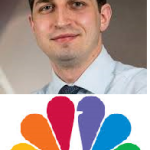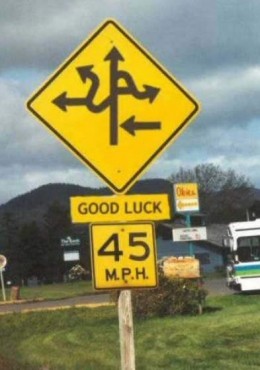MarketsMuse.com update courtesy of extract from Feb 16 CNBC reporting by Alex Rosenberg

There’s a major debate brewing in the financial markets, and it concerns the most important potential event of the year for stocks and bonds alike: the timing of a Federal Reserve rate hike.
In one corner are the economists. Many of those looking primarily at the state of the recovery say that the Fed will likely raise its key federal funds rate in June.
On the other side are traders, who say that current market dynamics—and prior experience with the central bank—tell them that a rate hike isn’t coming in 2015.
What the Fed actually chooses to do, of course, will have a profound impact on financial market, and perhaps on the economy as well. The federal funds rate, a critical short-term rate at which banks can lend to one other, has been kept ultra-low by the Fed since the financial crisis days of December 2008.
Now, many economists expect that the Fed is finally set to shift from ultra-low levels, given the strong state of the labor market.
With the unemployment rate declining and payrolls data showing some 250,000 payroll gains a month, “the U.S. labor market is screaming for policy normalization,” as Societe Generale economist Aneta Markowska put it in a recent note.
If the economists are right, a hint at a June rate hike could come as soon as Wednesday, when the Fed will release the minutes of their last policy meeting. If the minutes find them gushing about growth and unbothered by economic and geopolitical problems overseas, it could serve as a reminder for investors that a June hike is still on the table. So, too, could the congressional testimony of Fed Chair Janet Yellen in the following week.
The Fed is “much closer to hiking then putting it off,” said Neil Azous of Rareview Macro, a firm that advises large investors. After all, “it is hard to argue from an economist’s perspective that they shouldn’t at least start the process. Their models are telling them to, regardless of the problems abroad in Europe and Asia.”
Strong job creation, especially if February’s payrolls top expectations, could also hint at a tightening. “If the job market holds anywhere close to what it’s been running at, then yeah, we’ll get a hike,” agreed Deutsche Bank economist Joseph LaVorgna. “I don’t see why the Fed wouldn’t go in June.”
Still, that sentiment is clearly not reflected in the market. Fed funds futures are implying just a 20 percent chance of a rate hike in June, according to CME Group’s FedWatch tool.
Indeed, if Yellen does give a hint in the weeks ahead that a June rate hike is possible, “the fixed income market would re-price swiftly and painfully against the consensus long position,” Azous said.
In other words, rates (which move inversely to bond price) could rise dramatically. And that, in turn, could have a profoundly negative impact on stock prices.
Read More Shiller warns bond investors: Beware of ‘crash’!
Yet traders clearly believe that such a hint isn’t coming. In addition to what the fed funds futures are saying, the markets overall don’t seem to be pricing in a great deal of bad news. Stocks continue to find record highs, and the 10-year yield is just above 2 percent, a very low level in historical terms.
“The economists believe that the Fed will raise rates because they’re looking at the economic data and they don’t look at the markets,” says Michael Block of Rhino Trading Partners. He predicts that the fed funds rate will be kept ultra-low for the foreseeable futures.
Block points to the Fed’s old 6.5 percent unemployment rate threshold for potentially raising rates—which was later dropped.
Given that the Fed didn’t raise rates then, “why do the economists believe them now? Because they’re economists,” he said.
“If you’re asking me who’s going to win, the traders or the economists, my money goes with the traders,” Block added. “They’re the guys who live in the real world as opposed the economist who live in the theoretical world, and that world was tossed out the window.”
But LaVorgna retorts that markets have actually tended to do a pretty bad job of pricing in Fed moves.
“At inflection points in monetary policy, it’s not unusual for the market to grossly underestimate where the fed funds rate is going,” he said, noting that this was seen during the rate-hiking cycles in 2004 and 1994. “So the fact that the market is at odds with where the Fed is is not unusual.”
And ironically, the market’s lack of concern could serve as another point in favor of a rate hike, given that optimistic stock valuations and low bond yields would make such a move more palatable from the Fed’s perspective.
“Stocks are going to sell off on it no matter what, so if we’re around all-time highs, it will make the Fed feel better,” said Brian Stutland of Equity Armor Investments.
“I, for one, think traders are underpricing the chance of a potential rate hike,” he added.
For the full story by CNBC reporter Alex Rosenberg, please click here


